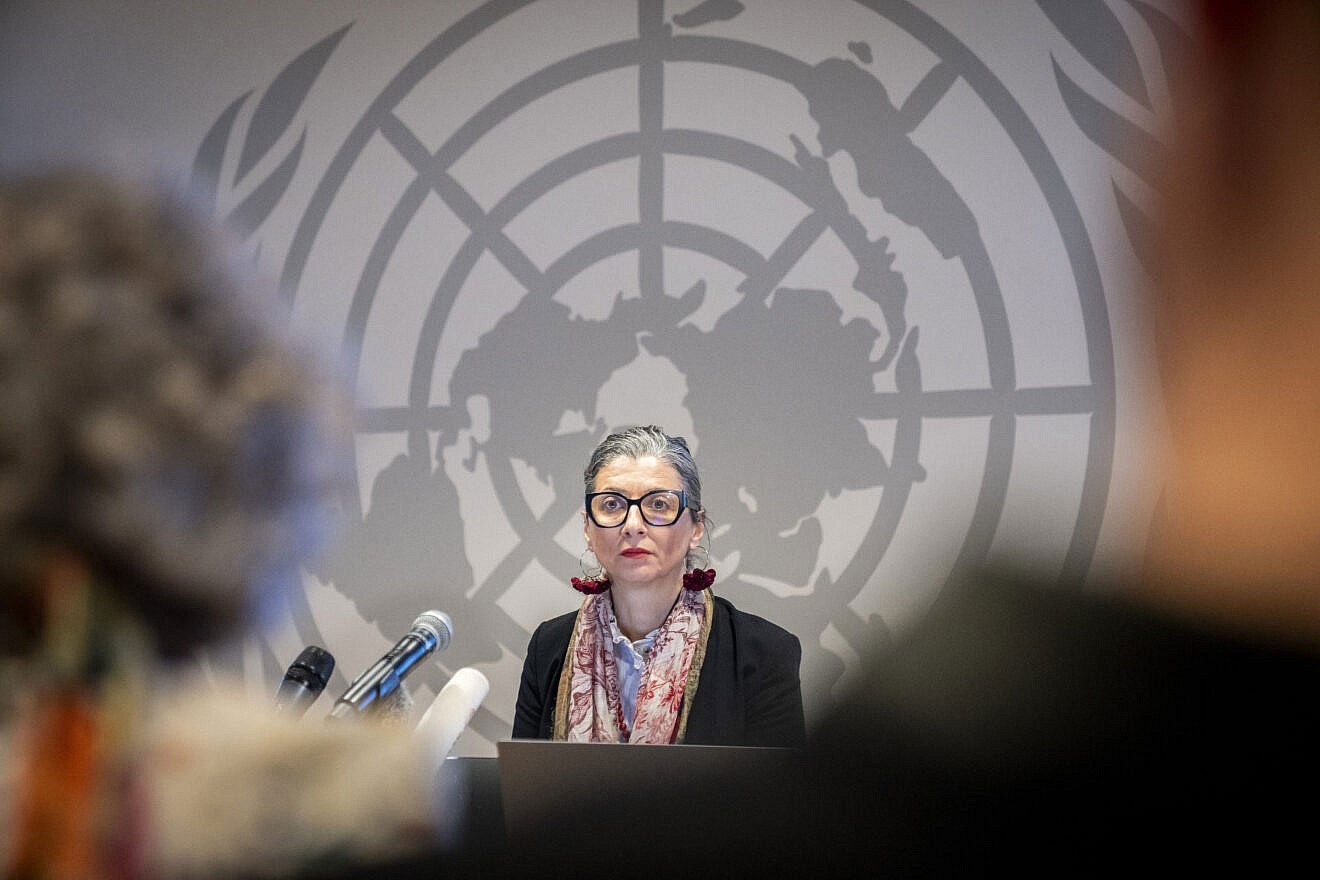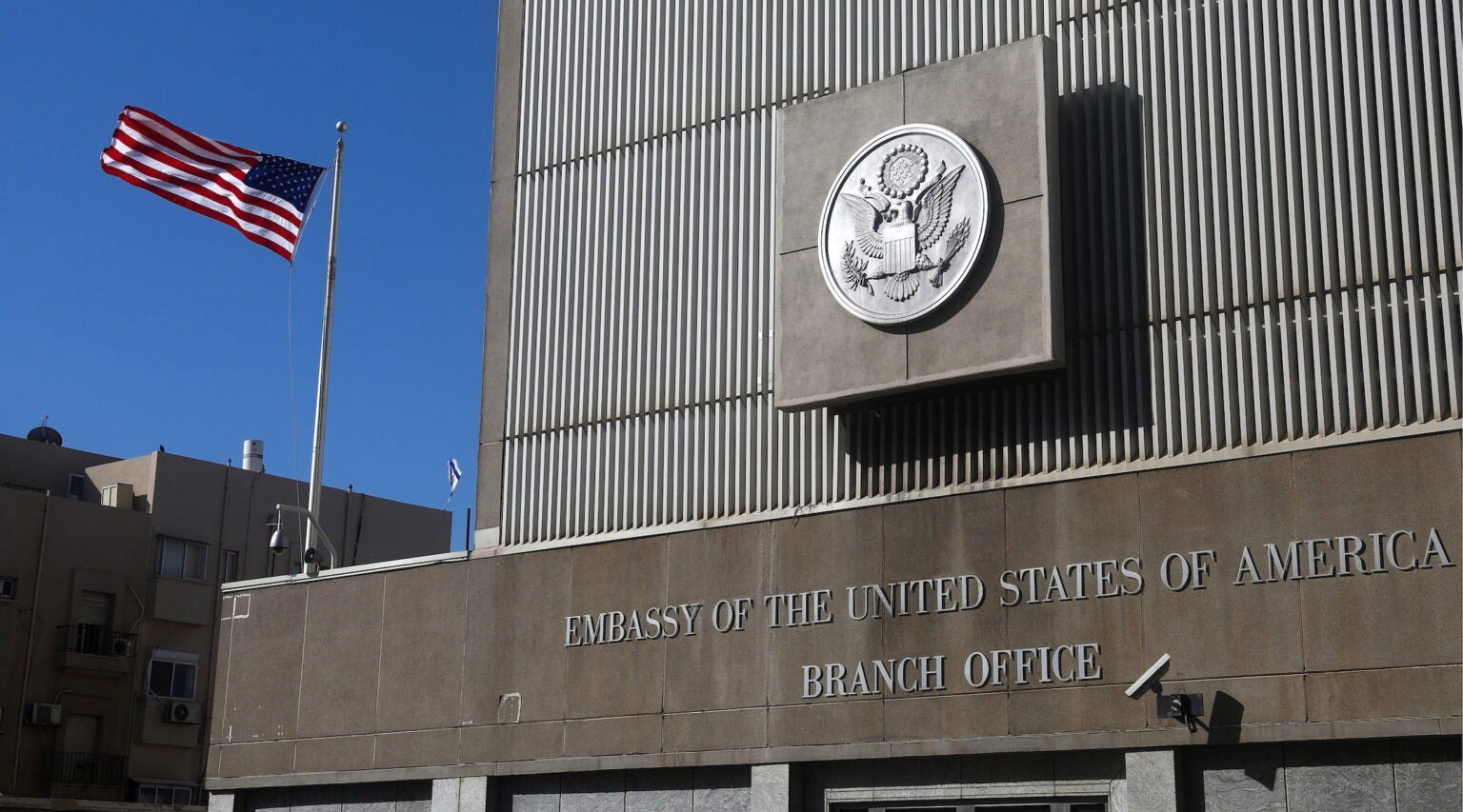Courtesy of JNS. Photo credit: Tasmin News Agency via Wikimedia Commons
Hezbollah gunmen and rocket launchers in Southern Lebanon, May 2023
(JNS) — As the IDF expands its operations against Hamas and Palestinian Islamic Jihad (PIJ) in Gaza, Hezbollah — once the leader of the Iranian axis of terror proxies — remains notably silent, choosing not to escalate hostilities on Israel’s northern front.
Hezbollah’s guns are even silent in the face of consistent Israeli airstrikes on Hezbollah targets in Lebanon. Iran’s ring-of-fire strategy appears to be in a state of deep freeze.
On Thursday night, the IDF struck a military site containing an underground terrorist infrastructure site in the Beqaa area in Lebanon, as well as a site containing rocket launchers in southern Lebanon in which Hezbollah activity had been identified, according to the Israeli military.
The IDF stated that it “will continue to operate to remove any threat to the State of Israel and will operate to prevent any attempt by the Hezbollah terrorist organization to rebuild its forces.”
Despite these attacks, Hezbollah has refrained from any retaliation. Instead, it has limited itself to issuing strong statements, according to David Daoud, a senior fellow at the Washington-based Foundation for Defense of Democracies.
A Hezbollah statement on March 18 condemned “in the strongest terms the Zionist enemy’s resumption” of combat against Hamas, describing it as an “extermination war” conducted “in a blatant violation of international law and humanitarian standards.” The statement described both Israel and the United States as “bloodthirsty.”
Prof. Benny Miller, an expert on international relations at the School of Political Sciences at the University of Haifa, described several key factors contributing to Hezbollah’s current lack of military-terrorist responses.
Among them, he told JNS on Thursday, is the “changing balance of power in Lebanon itself, even if it is still a failed state, still with the new president and growing external and seemingly also domestic support for the national military.”
He also noted “the regime change in Syria,” explaining that “the new regime is hostile toward Hezbollah because of what it did to the insurgents during the civil war in the Arab Spring.” This hostility, he explained, complicates Hezbollah’s efforts to rearm through Syria.
Miller also cited “the Trump administration’s ‘maximum pressure’ campaign” on Iran, which likely is harming Tehran’s ability to support Hezbollah. Additionally, he argued that “following the successful and effective Oct. 26, 2024, Israeli attack, Iran is quite vulnerable to new air attacks.” This makes it more cautious to activate Hezbollah.
Iran’s domestic situation also plays a role. Miller noted “potentially growing domestic opposition in Iran toward the regime — even though it is pretty tricky to measure the extent and the level of such opposition.”
Moreover, he suggested that “if Trump succeeds in forging closer relations with Russia, that might weaken the Russian-Iranian axis and thus make Iran even more vulnerable.” Miller concluded that “the cumulative effect of all these factors might provide an adequate explanation” for Hezbollah’s decision to hold back for now.
Prof. Eyal Zisser, vice rector of Tel Aviv University and the university’s chair of contemporary Middle East history, pointed to Hezbollah’s weakened position as the primary reason for its inaction.
“Hezbollah has been hit hard and its public support base has absorbed economic damage. Its interest is to lower its head until the storm passes,” Zisser told JNS. “Hence it is willing to absorb the small blows that Israel lands on it every few days, and hope for the best. It has no interest in dragging Lebanon into another destructive war, but it is clear that Hezbollah has not changed its nature and is waiting for the right time to lift its head.”
He added: “I believe Iran is involved in this decision. Its ability to respond and support Hezbollah is limited, and so it too is limited. Hence its advice [to Hezbollah] is to lower its profile and wait for things to calm down, and then [it hopes] things would return to what they were.”
Israel, for its part, has no intention of allowing Hezbollah to rebuild its terror army in Lebanon or to permit Hezbollah to link its activities in Lebanon to events in the Gaza Strip. After successfully delinking the Lebanese and Gazan arenas, Israel is determined to prevent Iran from relinking these arenas and rebuilding its ring of fire.





